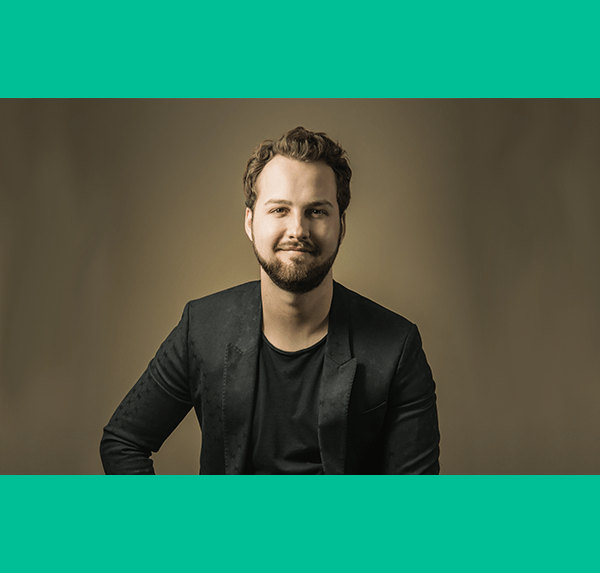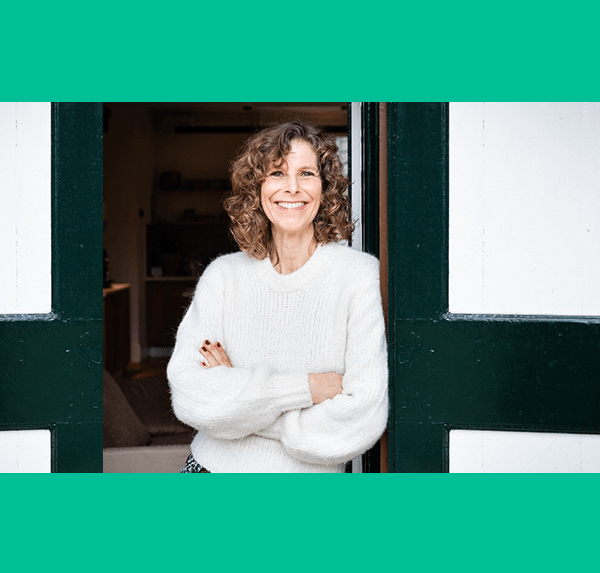EU Alumna, Laura Gertenbach, on the Cultured Meat Industry
Laura Gertenbach was born and bred in Rostock, Germany, where she still lives today. She studied a bachelor’s program with EU Business School in Barcelona and has also lived in the US.
As a meat-lover and the daughter of farmers, Laura was keen to embrace the future of the meat industry and founded Innocent Meat. Alongside this cultured meat company, she also runs an organic meat and Christmas tree business!
Could you tell us about your career journey since leaving EU?
One of my EU lecturers helped me find an internship in a hotel but through this experience I realized that the tourism industry wasn’t for me. I decided that I wanted to be my own boss. I always wanted to start a company and what I really liked about EU was that the lecturers encouraged it.
My parents are farmers, and I got the idea to start a Christmas trees business from one of my father’s magazines. I quickly set up a website and decided to offer a delivery service. I then persuaded a journalist to write an article about the business. I remember my dad laughing, thinking it was never going to work but it did! Ten years later it is still a healthy and growing business.
Obviously, the Christmas tree business is seasonal, so I had to find something else. I have always been a big meat eater, but I was concerned about how it’s produced. My family know a lot of farmers whose animals are outside all day, every day, so I started buying from them and creating products. I established my pure meat company, Oberlecker, but at the start, I faced some challenges. First, I didn’t want to transport the animals hundreds of kilometres to slaughter. If the animals have been outside their entire lives, they will be nervous during transportation, which is not good for the quality of the meat. The other issue was that when I wanted to produce more, the manpower or animals were missing as it is a seasonal business.
In 2017 I first heard about cultured meat, and I thought it could really solve my problems. I decided to go in this direction and, by coincidence, I found my co-founder, an expert in plant proteins and GMO technologies. I learned from my dad that you always have to choose your co-founder wisely, and Patrick and I are a really good match. We have the same values but different educational backgrounds; he’s the science guy and I’m the businessperson.
Back in the day, cultured meat had not really been exploited in Europe, so investors thought we were crazy. None of them had experience in the meat industry so it took us a long time to get the first pre-seed funding. We decided not to go into consumer goods, aiming instead to develop a production technology so the meat industry could produce cultured meat directly in their own factories, without needing the scientific knowledge behind it. I know how tough it is to market to supermarkets even if you have a great product, so it is better to work with the farmers themselves.
With a lot of power and patience we have built a team of nine people and are in the seed-funding phase. We have acquired several partners and we are the first cultured-meat company in Germany.
Could you explain the science behind cultured meat?
The idea is to generate meat from stem cells which are derived from tissue engineering – usually to grow organs or whole tissues for medicine. You take a biopsy and then generate stem cells from this. You then feed the stem cell in a bioreactor and, after ten days, you grow muscle meat in one bioreactor and fat in another.
Another way would be to take a hair of an animal and use GMO technology to reprogram the hair to become a stem cell.
Why do you think consumers will turn to cultured meat?
From my experience, conventional meat is becoming more and more expensive. We all assume that consumers are concerned with the environment, but I don’t think that’s the case. Inflation shows us that they go for inexpensive products.
Compared to last year, meat has had a price increase of 42%, which is still inexpensive compared to plant-based meat. The population is rising, so natural resources are becoming more and more scarce which will lead to the rise in the price of meat. When you have a product like cultured meat which is potentially a less-expensive version of the same product, I think the consumer will go for that. The texture is different, but the taste is the same. Real meat eaters won’t be convinced by plant-based meat, they may try it, but they won’t rebuy.
What products are you working on?
We developed the whole production technology for the industry so they could produce minced meat, this could be pork or chicken. Looking at the numbers, the demand is for processed meat. The CEO of a big German processor told me that people don’t cook because of their high-paced lifestyles so they sell lots of sausage products and minced meat.
When will we be able to buy these products?
The US and Singapore have approved cultured meat products and last week, China announced that they have a pilot plan for agriculture. Europe has not established clear guidelines yet and we also have to consider that 21 countries are involved in the process. So, I would compare the duration to how long it took to approve the consumption of insects, which I believe was around three to four years. It will take time.
What is the future of cultured meat and how do you think it will change the farming industry?
Cultured meat has the potential to be a good alternative to conventional meat production. My dad always complains about using 80% of his land to produce animal stock feed. It’s not logical, but it’s a global business and the farmer really depends on the climate and stock markets, so they have to go with that.
I really believe animal breeding will remain but at a much higher quality so conventional meat will become a luxury product. I think farmers will become part of the process when it comes to introducing cell media to feed the cells, because you need the ingredients they produce, and they have the land and experience to culture crops. It will definitely be a fundamental change to the whole industry.
As a mother and an entrepreneur, how do you balance your time?
I have a lovely husband. He wanted to stay at home and paternity leave is paid in Germany so it’s brilliant. I don’t go to events on weekends because this is my family time, which is really valuable to me.
What has been your proudest professional achievement?
The courage to found a company even when everyone else said it was impossible.













